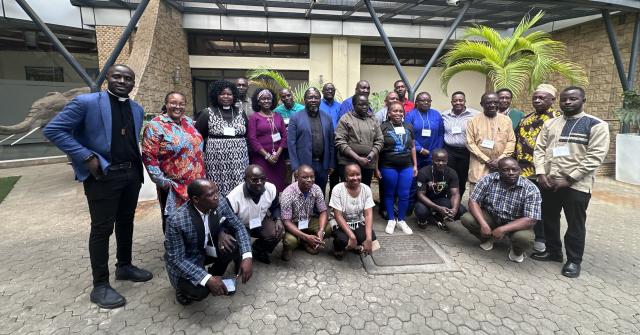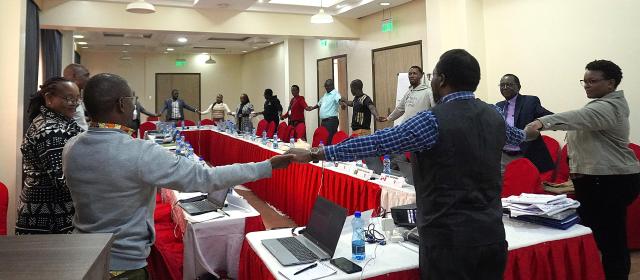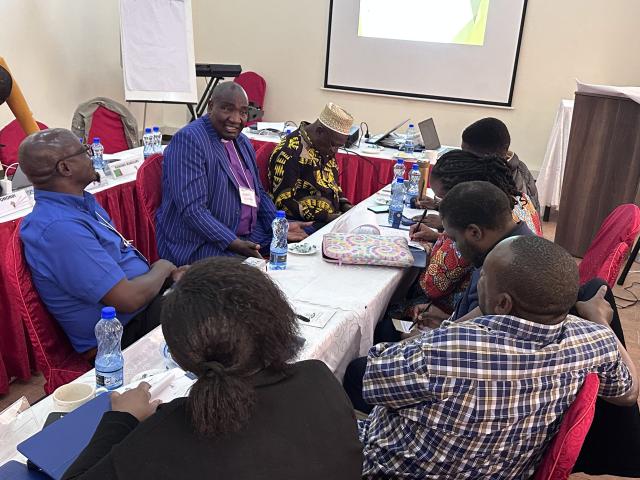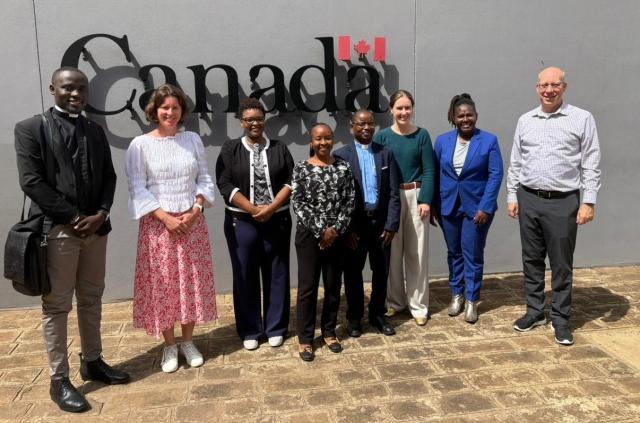For LGBTQIA+ people of faith in Africa, seeds of hope were shared at the East Africa “Faith Beyond Borders” interfaith workshop

The All Africa Theological Education by Extension Association (AATEEA), in partnership with The United Church of Canada and the Cosmopolitan Affirming Community (CAC), a welcoming and inclusive faith community in Kenya, recently convened an East African interfaith workshop in Nairobi, Kenya. It brought together faith leaders, LGBTQIA+ people of faith, theologians, and allies from Kenya, Tanzania, Uganda, and Rwanda, following another workshop in Johannesburg, South Africa earlier this year. The workshop built upon the ongoing collaboration, initiated through global and regional “Faith Beyond Borders” consultations, aimed at deepening intersectional theological dialogue, advocacy, and pastoral response.
Across East Africa, as in many contexts in Africa, discourses around gender and sexuality remain deeply shaped by religious narratives, colonial legacies, and heteronormative structures. Many faith spaces often reinforce exclusion, stigma, and violence against those of diverse sexual orientations and gender identities. In contrast, the “Faith Beyond Borders” workshop sought to create an ecumenical and interfaith space where participants could engage in discerning how faith can be a source of inclusion and transformation. The workshop followed a contextual methodology grounding theological dialogue in lived realities, intergenerational storytelling, reflections on memory, Ubuntu, and decolonial faith.
Centering memory as theological resistance, participants explored how colonialism wielded the erasure of memory of ancestral land, community, language, and Indigenous values such as Ubuntu among many African community contexts. They also engaged in a participatory “See-Judge-Act” contextual bible study methodology developed at the Ujamaa Centre for Community Development and Research of the University of KwaZulu-Natal, South Africa. The methodology employs critical consciousness in tackling oppressive systems and the power relations that sustain them. It emphasizes understanding social realities from the perspective of those who are oppressed and marginalized.

Participants also engaged in compelling and provocative discussions that explored inclusive and decolonial biblical interpretation as a path to affirming human dignity and belonging. They were guided in reflecting on theological inquiry rooted in the Old Testament’s call to memory, African cosmologies of relationality, and a liberative re-reading creation and justice. The discussions sought to reclaim scripture as a tool of restoration rather than oppression, arguing that both colonial and patriarchal readings have distorted its original relational intent.
“Remembering is a sacred act of resistance, reclaiming what was stolen through misinterpretation and spiritual amnesia,” said one workshop facilitator.
Participants explored the intersections between culture, coloniality, and faith. Discussions revealed how colonial impositions of gender binaries and sexual morality have overshadowed pre-colonial African expressions of fluidity and community belonging.
In groups, they shared deeply personal stories of exclusion, conversion therapy, and resilience. Testimonies revealed how the ongoing practice of conversion therapy and related forms of coercive “deliverance” in Uganda, Kenya, and other countries weaponize parental fear, pastoral authority, and pseudoscience. A Ugandan activist recalled how anti-rights movements weaponize “ex-gay” testimonies to pass harmful laws. “They used our tears and our stories against us, but we are reclaiming our narratives with integrity,” she said.

Others reflected on resilience and the power of community organizing. The formation of parent-led support networks emerged as a crucial strategy for transformation. Participants noted that changing hearts often begins at home, not in the pulpit.
Despite painful histories, the workshop illuminated concrete seeds of hope, including expanding safe spaces and having transformative conversations grounded in lived realities. It also reaffirmed the vision of a faith that welcomes, remembers, and restores; a movement that transforms pain into power and belief into belonging.
“I have converted my scars into stars of hope, and my pain into ministry with and for the marginalized,” a bishop shared in closing.
The United Church is grateful to the Act Together for Inclusion Fund, funded by Global Affairs Canada and managed by Equitas in partnership with Dignity Network Canada, for the support of collaborative consultations on human sexuality and gender diversity with partners in Africa.

______________________________
Your support helps to accompany global partners, enabling vital visibility. The 2S and LGBTQIA+ Global Solidarity Fund supports international consultations with religious leaders, 2S and LGBTQIA+ communities, and sponsorships of LGBTQIA+ refugees to Canada. Make a gift today to help advance the rights of 2S and LGBTQIA+ people around the world.
—Jane Thirikwa is Program Coordinator, Global Advocacy 2S and LGBTQIA+, at the General Council Office.
The views contained within this blog are personal and do not necessarily reflect those of The United Church of Canada.